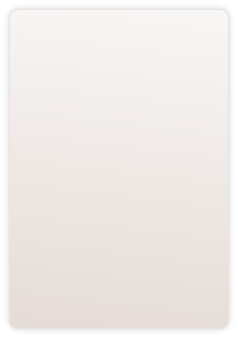

For more information: Recommended Links | Frequently Asked Questions
Copyright © 2018 by Michael Ray Brown. All rights reserved.
“First rate analysis at a cut-rate price.”
— Creative Screenwriting



Script Consultants Issue #1
Michael Ray Brown, Story Sense


In this Special Agency/Consultant issue, Hollywood Scriptwriter magazine talks with agents, managers, and script consultants to find out how you can break into the industry as a filmmaker, director, or producer. Here Story Sense founder Michael Ray Brown offers his advice on hiring a professional.
This excerpt from the July of 2004 issue is reprinted here with the permission of Angela M. Cranon, Editor-in-Chief, Hollywood Scriptwriter magazine.


What is the primary function of a script consultant?
A consultant essentially provides the writer with a perspective on their material. It’s an informed perspective, based on years of experience in the industry. I believe that a consultant should be a collaborator, not just a critic. A good consultant will brainstorm with writers, and stimulate them to create their best work.
How does one choose a script consultant?
It’s important to look at a consultant’s credentials. If they’ve held a position in the story department of more than one studio or production company, that’s an indication their skills are recognized. Check out the special issue that Creative Screenwriting magazine runs every couple years, reviewing many of the top screenplay consultants.
Some consultants may have personal preferences, but most of them claim to handle all genres equally well. And, indeed, the basic principles of dramatic structure apply to all types of stories. Television has its own unique rules, though. If you’re writing for the small screen, make sure the consultant has worked in that medium. There’s no better way to get a sense of a consultant’s personality and ability to communicate than by talking with them.
Ask to see a sample. It’s important that the consultant’s analysis be constructive. Some consultants organize their notes into categories, such as characterization, structure, production values, etc. They analyze whether your screenplay fits certain criteria. Some consultants try to shoehorn every script into a paradigm. It doesn’t help if the consultant is trying to impose their vision on yours. My guiding rule is that the story must hold my interest.
Why would someone need to secure a script consultant?
It’s often difficult for a writer to remain objective about their own work. Sometimes a writer needs to know they’re on the right track. Sometimes they know the script has problems, but they’re stumped at finding a solution. A consultant can provide insight into a writer’s work, helping them to understand where they’ve veered off course, and providing creative solutions for getting the script back on track.
Sometimes it’s apparent upon reading a script that the writer hasn’t yet figured out what story they want to tell. In such cases, I’ll get on the phone with the writer and ask questions in an effort to nail down the theme. Once I know the writer’s intention and the story’s dramatic spine, I can identify characters and plot beats that have missed the mark.
At what stage should a screenwriter consult with a script analyst?
The short answer is whenever the writer feels they need help. Probably the most productive time is when the writer has exhausted all their creative juices. When the writer believes they’ve covered all the bases, when they’re convinced they’ve written the best script (or treatment) they can write, then it’s time to show it to another pair of eyes. Irving Thalberg, MGM’s legendary head of production, said that movies aren’t written, they’re rewritten. The writer should put the script away for a while, then take it out and look at it with fresh, critical eyes. Then rewrite it. Finally, about a couple months before sending it to the next big screenplay contest, order some notes from a script consultant.
Why is this stage important, as opposed to earlier or later?
If you hire a consultant before everything’s on the page, you’re asking the consultant to do your work for you. You’ll be wasting your time and money covering issues you might have been able to resolve yourself. On the other hand, getting a consultant’s help in refining your outline or treatment can save you lots of time and effort when it comes to writing the script. Don’t wait until the week before you plan to send it out before seeking the advice of a consultant. Allow yourself plenty of time for a rewrite.
What should a screenwriter do prior to seeking a script consultant?
Again, write the best script you feel you can write. If there are issues you’re particularly concerned about, mention these in your cover letter to the consultant. It’s also a good idea to discuss what inspired you to write the script, which may help the consultant get a handle on its theme.
What should a screenwriter be left with after consulting such services?
Your experience may be humbling. You may feel sick at the prospect of going back to square one. You may feel validated. Above all, once the shock wears off, you should come away amazed and inspired. A good consultant understands the kernel of truth that lies at the heart of every story, even those which are imperfectly rendered on the page. A good consultant will guide the writer, proposing alternate scenarios for developing this truth into a tale that resonates emotionally. Upon reading a consultant’s notes, the writer should have a blueprint for taking their script to the next level.

| Development Notes |
| Oral Consultation |
| Studio-style Coverage |
| Selling Synopsis |
| Proofreading |
| Sample Script Analysis |
| Sample Coverage |
| Sample Selling Synopsis |
| SolPix Interview |
| Creative Screenwriting Interview |
| Scriptwriter Interview #1 |
| Scriptwriter Interview #2 |
| Scriptwriter Interview #3 |
| Scriptwriter Interview #4 |
| Elements of a Great Script |
| Margin Settings |
| Scene Headings |
| Slug Lines |
| Description |
| Character Cues |
| Dialogue |
| Personal Direction |
| Transitions |
| Flashbacks |
| Montages |
| Telephone Calls |
| Registration |
| Software |